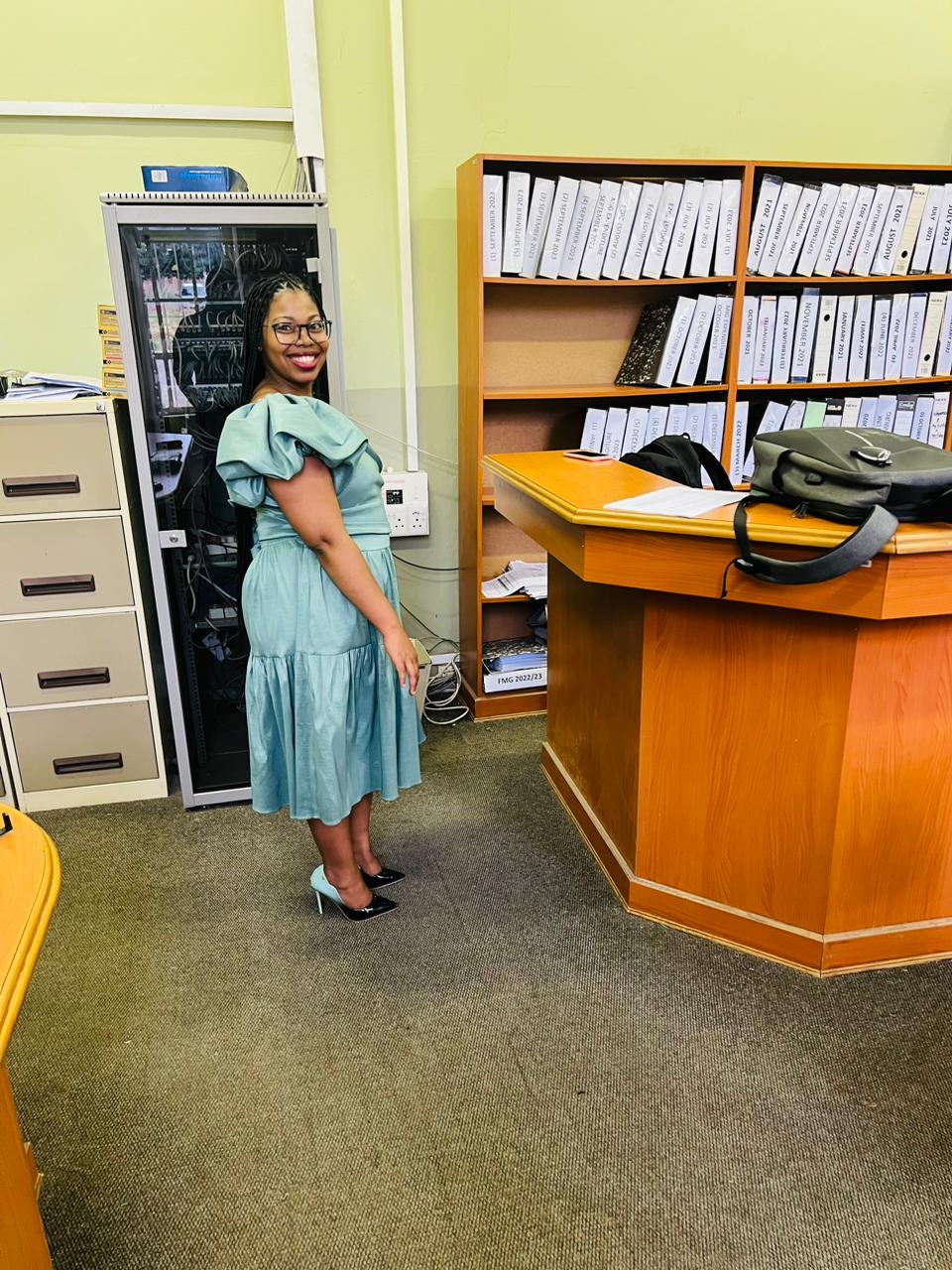Opinion piece: Reflecting on Women’s Day

Story: Sisaza Mvubu | Photo: Supplied
Opinion piece by Sisaza Mvubu, Accountant Creditor, Walter Sisulu Local Municipality
As we commemorate Women's Day in South Africa, we are reminded of the profound impact women have had on shaping our nation's history, particularly through the historic march to the Union Buildings 68 years ago. This march marked a pivotal moment in the fight for women's rights, and it is essential to reflect on the progress made since then, the challenges that persist, and the aspirations we hold for the future.
The 1956 women's march was more than a protest; it was a powerful assertion of the voice and agency of women. Since then, one of the most significant achievements has been the amplification of women's voices in all spheres of life. Women are now seen and heard in positions of leadership, both in the public and private sectors, breaking barriers that once confined them to the margins of society. This empowerment has been crucial in transforming societal norms and creating more inclusive spaces for future generations.
Theme of the year: celebrating 30 years of democracy
This year’s theme, “Celebrating 30 Years of Democracy Towards Women’s Development,” invites us to reflect on the strides made in empowering women over the past three decades. The progress is evident as women now occupy key positions across various sectors, including leadership roles that were traditionally reserved for men. This shift is particularly noteworthy in rural areas where cultural norms have historically hindered women's advancement. Despite the slow pace, the change is tangible, and women are increasingly taking the driver's seat in their communities and workplaces.
Challenges and barriers
However, significant challenges remain. Cultural constraints continue to dictate how women should conduct themselves, often leading to a limited mindset and missed opportunities. Access to knowledge and resources is still a major barrier, especially in rural and underdeveloped areas. Additionally, violence against women and children remains a pressing issue, exacerbated by a legal system that often fails to protect victims adequately. High-profile cases, such as the tragic murder of Namhla Mtwa, highlight the urgent need for more stringent measures against gender-based violence and better support systems for survivors.
Role of women as agents of change
Women have consistently been active agents of change and social transformation. The legacy of the 1956 march continues to inspire current movements and initiatives aimed at advancing women's rights. The establishment of organizations like the Bantu Women’s League by the African National Congress has laid the foundation for continuous advocacy and action. These efforts demonstrate the enduring spirit of women who strive to create a more just and equitable society.
Intersections of freedom and democracy
The intersection of 30 Years of Freedom and Democracy with women's rights has brought about significant milestones and policies. The National Policy Framework for Women’s Empowerment and Gender Equality has been instrumental in shaping a more inclusive landscape. These policies have paved the way for more women to engage in political, economic, and social spheres, contributing to the overall development of the nation.
Future aspirations
Looking ahead, there are several aspirations for the next decade. Strengthening laws to protect women from gender-based violence is paramount. The legal system must ensure that perpetrators are held accountable and that victims receive the support they need. Additionally, there is a need for increased funding and bursaries for women's education and business ventures. Empowering women economically through support for black-owned businesses, especially in rural areas, can significantly impact their ability to contribute to and benefit from economic growth.
To further support women's development, collaboration between individuals, communities, and the government is crucial. This includes promoting gender equality in workplaces, supporting women-owned businesses, and ensuring that resources and opportunities are accessible to women in rural areas. Education and outreach programs can play a vital role in this regard, helping women to navigate and leverage available support systems.
Personal Journey
On a personal note, my journey as a woman in South Africa's democracy has been shaped by access to education and professional growth opportunities. From participating in the Fees Must Fall movement to gaining invaluable experience through SAICA articles in a black-owned firm, these experiences have been instrumental in shaping my views on women's development and empowerment. They have taught me the importance of resilience, continuous learning, and the impact of supportive networks and mentors.
The sacrifices of those who came before us laid the groundwork for the freedoms we enjoy today. Their unity, hard work, and faith were the pillars that upheld their fight for justice. As we look to the future, let us remember the wisdom of Proverbs 9:10, "The fear of the Lord is the beginning of wisdom, and the knowledge of the Holy One is understanding." By placing God at the centre of our efforts and embracing the principles of unity and hard work, we can continue to build a better future for all women in South Africa.
Women's Day is not just a time to celebrate past achievements but also a call to action to address ongoing challenges and work towards a more inclusive and equitable society. By reflecting on our history, acknowledging our progress, and striving for continuous improvement, we honour the legacy of those who fought for our rights and pave the way for future generations.
